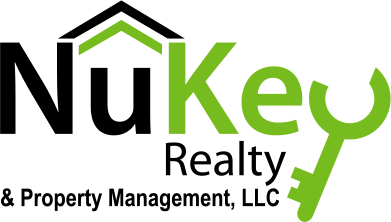Are you considering becoming one of the more than 10 million Americans who earn their income from rental properties? It can be a great way to grow your wealth. The average landlord makes approximately $97,000 a year, according to the US Census & Landlordology.
The number of renters has increased steadily since 2007 when the housing market imploded. There is also a high demand for rental units due to the recent interest rate hikes that have made home buying challenging. The costs associated with housing have also far outpaced wages for many workers. All of this makes renting an attractive alternative to home ownership.
About one-third of American households rent as opposed to own. As a result, the rental market is booming, and it is a big lure for would-be landlords.
But being a landlord is a long-term investment that needs to be approached carefully. Whether it is your career choice or an extra source of income, being a landlord requires a lot of hard work, knowledge, and time.
Looking for to start earning rental income?
NuKey Realty is your Property Management company here to help you become a landlord.

7 Actions to Take to Prepare for Being a Landlord
Let’s look at seven steps that will increase your chances of success at becoming a landlord in Spokane.
1) Find Out If an LLC is Necessary for Your Rental Business
An LLC, or Limited Liability Company, is not required to manage a rental property, but it could prove helpful to limit your personal liability and separate your rental income from your personal income.
Establishing an LLC for your rental business offers both advantages and disadvantages.
Advantages of an LLC:
- Less paperwork
- Ownership flexibility
- Flexible profit distributions
- Limited personal liability
Disadvantages of an LLC:
- Cost
- Pass-through taxation – this refers to businesses that do not pay taxes on the entity level; Instead, the income passes to the owners of the business, who pays personal income taxes for their share of the business.
- Difficulty in obtaining investors.
- Transferable ownership — Ownership in an LLC is frequently harder to transfer than with a corporation.
Because the state regulates LLCs, the way you create an LLC will differ based on where your rental property is located. It is recommended that you refer to your Secretary of State’s website for more information.
If you move forward with an LLC, it will be helpful for your business to create a separate business bank account to store rental payments, security deposits, pet fees, etc.
2) Obtain a Rental Registry
Some counties want landlords to register their rental property with the city. This would be required to rent out their property to tenants.
A rental registry calls for a landlord to submit information to their city government, and this will include the name of ownership, address, the operating manager, and the landlord’s contact information.

3) Be Knowledgeable About Landlord-Tenant Laws
One way to avoid becoming ensnared in legal issues during the rental process is to be aware of your local landlord-tenant laws. These laws have been established to protect landlords and tenants and must always be followed.
Also, it behooves you to understand federal Fair Housing laws and local ordinances when looking for tenants for your property. You could be taken to court or even be compelled to shut down your rental business if you do not comply with these laws.
After you have started your rental business, you should regularly check the local landlord-tenant laws in case there are ever significant changes made to them.
4) Correctly Price Your Rental Property
You should never list your rental property for less than what it would cost for someone to buy it on their own. Knowing the market rate in your area enables you to gauge whether you are underestimating the value of your property or asking too much and keeping away potential new tenants.

5) Know What Type of Tenant You'll Want
When you own any business, it is essential that you know your target market. You should be aware of this target market’s demographics, including their ages, occupations, buying habits, and lifestyle.
It is no different when you are a landlord. It is important to know to whom you want to rent your property and understand tenant preferences that will influence the types of people who will be drawn to it.
For example, is your ideal tenant wanting a certain style or size of bedroom, or perhaps they are looking for a large kitchen? Maybe they want to live close to a shopping district.
When you’re armed with this valuable information for your perfect tenant, you will be able to market your properties in an effective way. It may even guide your budget allocations.
Knowing your ideal tenant will make it possible for you to both find and hang onto tenants who are a perfect match for your property.

6) Prepare Your Finances
As a landlord, you will handle lots of maintenance requests and repair damage before and after a tenant moves in. You may also run into situations where a tenant is not able to pay their rent. As a result, you will want to have money available to cover the mortgage payment or additional fees related to your property.
Typical operating expenses to prepare for as a landlord are the following:
- Property and rental income taxes
- Mortgage and utility payments
- Landlord insurance
- Tenant screening fees
- Mandatory inspections and annual registration fees
7) Buy Landlord Insurance
When you purchase landlord insurance, it will protect your rental property from structural damage and assist in covering other costs. A landlord insurance policy will also typically provide coverage for liability claims and loss of rental income. It is best to check with your insurance provider for coverage options.
It is also a good idea to have tenants take out renters insurance to be sure that their belongings are protected. Landlord insurance only covers your property, making renters insurance highly advisable.

Advantages of Earning Rental Income
Among the major benefits of earning rental income are the following:
- Mortgage interest is deductible
- Owner expenses are also deductible
- Operating expenses are deductible
- Defer capital gains tax
- Avoid FICA taxes
- Qualify for a pass-through deduction
Look to NuKey Realty as Spokane's Property Management Experts
At NuKey Realty, our experienced team of property experts has backgrounds in real estate investment and sales, real estate development, planning and design, and, of course, property management.
This well-rounded range of experience enables us to not only handle the day-to-day managerial tasks with ease but also helps you excel in the rental industry as a landlord.
Whether you want to rent your home, rent several houses, or invest in a whole complex of apartments, we’re here to make your properties profitable and stress-free.


No comment yet, add your voice below!